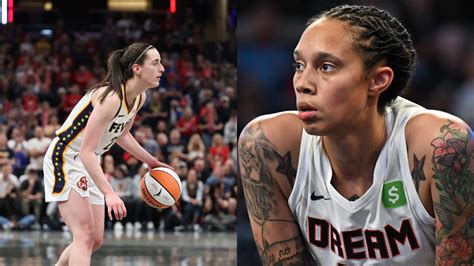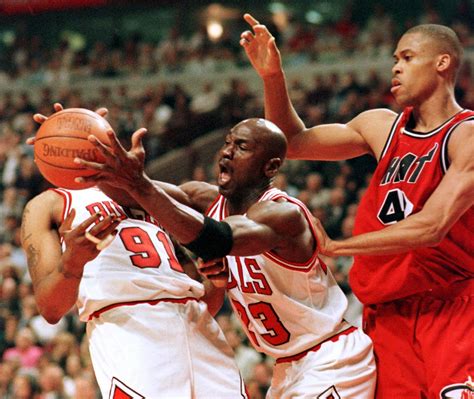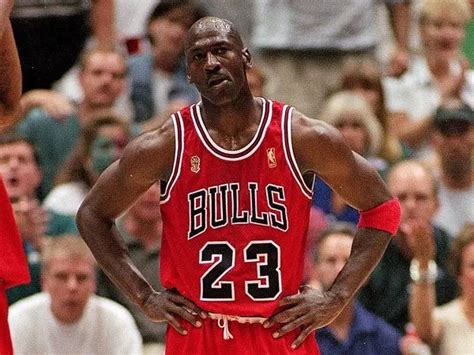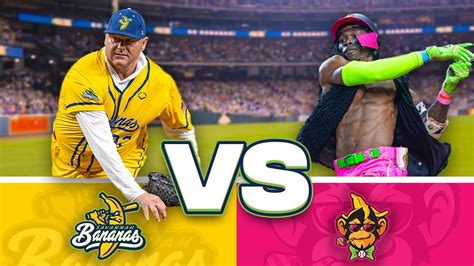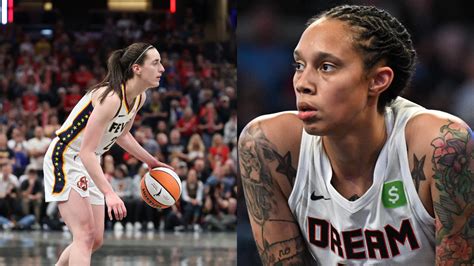
Brittney Griner is facing renewed scrutiny after vehemently denying using a racial slur against Caitlin Clark, prompting a heated debate among fans and observers about whether the incident reflects underlying racial tensions within women’s basketball. The controversy stems from an alleged on-court interaction during a recent Indiana Fever-Phoenix Mercury game.
Phoenix Mercury center Brittney Griner has denied allegations that she directed a racial slur at Indiana Fever rookie Caitlin Clark, sparking a widespread and often contentious debate about race, rivalry, and respect in women’s basketball. The accusations surfaced following a game between the Mercury and the Fever, and quickly ignited a firestorm on social media and in sports media outlets.
While details of the alleged incident remain murky, the accusation centers on claims that Griner used a derogatory term toward Clark during the game. Griner has staunchly refuted these claims, stating through her representatives that she holds no animosity toward Clark and that the accusations are baseless. “Brittney vehemently denies making any such remarks and is deeply disappointed that false allegations are being spread,” her spokesperson stated.
The denial, however, has not quelled the controversy. Instead, it has intensified the existing discussion about the dynamics between veteran players and rising stars in the WNBA, particularly when race is perceived to be a factor. Clark, a white player who entered the league with unprecedented hype and endorsement deals, has drawn both admiration and resentment, with some observers arguing that her race has played a role in the attention she receives.
The controversy surrounding Griner and Clark is unfolding against a backdrop of ongoing conversations about race, gender, and equality in sports. The WNBA, which has a predominantly Black player base, has been at the forefront of social justice advocacy, and the current situation has highlighted the complexities of navigating these issues within the context of athletic competition.
The game in question was already highly anticipated due to Clark’s entry into the WNBA. Her transition has led to increased viewership and revenue for the league, but also raised questions about how established players view her rapid rise and the accompanying media attention. Some believe that the alleged slur, whether true or not, is symptomatic of deeper issues related to race and privilege within the sport.
“The WNBA has always been a league that champions diversity and inclusion, but we can’t ignore the fact that racial biases exist, both consciously and unconsciously,” stated Dr. Akilah Carter-Francique, Executive Director of the Institute for the Study of Sport, Society and Social Change at San Jose State University. “The Griner-Clark situation is a microcosm of broader societal issues and needs to be addressed with sensitivity and nuance.”
Critics of Clark’s treatment argue that she has unfairly benefited from her race, receiving endorsements and media coverage that her Black counterparts have historically been denied. Others argue that Clark’s talent and marketability are the primary drivers of her success and that focusing solely on race overlooks her achievements.
“Caitlin Clark is an exceptional player, and her impact on the WNBA is undeniable. To suggest that her success is solely based on her race is dismissive and undermines her hard work,” said sports analyst Michael Wilbon on ESPN’s Pardon the Interruption.
Amidst the differing viewpoints, the WNBA has remained largely silent on the specific allegations, but has reiterated its commitment to fostering a respectful and inclusive environment. “The WNBA is dedicated to promoting equality and respect both on and off the court. We take all allegations seriously and will continue to work towards ensuring a positive environment for all players,” the league said in a statement.
The Griner-Clark controversy also highlights the challenges of navigating social media in the context of sports. The speed and reach of platforms like Twitter and Instagram have allowed rumors and accusations to spread rapidly, often without verification. This has made it difficult to separate fact from fiction and has contributed to the highly polarized nature of the debate.
“Social media has amplified the voices of both supporters and detractors, making it challenging to have a constructive conversation about the issues at hand,” said media consultant Laura Zimmerman. “The lack of nuance and the tendency to engage in personal attacks have made it difficult to address the underlying issues in a productive manner.”
The unfolding situation calls for a deeper examination of race relations within the WNBA and the broader sports landscape. It also underscores the importance of addressing issues of bias, privilege, and respect in a way that promotes understanding and inclusivity. As the debate continues, it is crucial to consider all perspectives and engage in a dialogue that is both informed and respectful.
Further complicating matters is the historical context of Griner’s own experiences with discrimination and her high profile advocacy for LGBTQ+ rights and social justice. Some fans are finding it difficult to reconcile the allegations against her with her past activism. “It’s hard to believe Brittney would use such language given her history, but the allegations are serious and need to be addressed,” one fan commented on social media.
The WNBA Players Association (WNBPA) has also weighed in, emphasizing the need for a fair and thorough investigation. “The WNBPA is committed to ensuring that all players are treated with respect and dignity. We support a fair and impartial investigation into these allegations and will work to ensure that due process is followed,” the association said in a statement.
In the meantime, the controversy continues to overshadow the on-court performance of both Griner and Clark. Both players have faced increased scrutiny from fans and the media, and their every move is being closely watched. This added pressure has undoubtedly affected their performance, as they attempt to navigate the challenges of competing at the highest level while also dealing with the fallout from the allegations.
“It’s tough to focus on basketball when you’re constantly being bombarded with negativity,” one of Clark’s teammates told ESPN. “We’re trying to support her and help her stay focused, but it’s not easy.”
The situation serves as a reminder of the complexities of race and gender in sports, and the importance of addressing these issues head-on. While the truth of the allegations may never be definitively determined, the controversy has sparked a necessary conversation about the challenges and opportunities facing the WNBA as it continues to grow and evolve. The league and its players will need to navigate these issues carefully in order to create a truly inclusive and equitable environment for all.
The debate extends beyond the alleged slur itself, touching upon the marketing and media portrayal of WNBA players. Clark’s rapid rise has been contrasted with the experiences of Black players who have long been the backbone of the league but haven’t received the same level of attention. This disparity has fueled discussions about systemic biases in sports media and the ways in which race and gender intersect to shape perceptions of athletes.
“There’s a long history of Black athletes being overlooked in favor of their white counterparts,” said Dr. Richard Lapchick, Director of The Institute for Diversity and Ethics in Sport (TIDES). “This isn’t just about Caitlin Clark; it’s about the broader issue of representation and opportunity in sports.”
Some commentators have suggested that the WNBA needs to do more to promote its Black players and to address the historical inequities that have contributed to the current situation. Others argue that focusing solely on race is divisive and that the league should instead focus on promoting all of its players equally.
Regardless of the specific approach, it is clear that the WNBA has a responsibility to address the underlying issues that have been brought to the surface by the Griner-Clark controversy. This will require a sustained effort to promote diversity, equity, and inclusion at all levels of the league, and to create a culture of respect and understanding among players, fans, and the media.
The incident also raises questions about the role of social media in shaping public opinion and perpetuating stereotypes. The rapid spread of unverified information has made it difficult to have a rational discussion about the allegations, and has contributed to the polarization of the debate.
“Social media can be a powerful tool for raising awareness and promoting social justice, but it can also be used to spread misinformation and incite hatred,” said social media expert Emily Carter. “It’s important to be critical of the information we consume online and to avoid making assumptions based on limited evidence.”
As the investigation into the allegations continues, it is crucial to avoid jumping to conclusions and to allow due process to take its course. It is also important to remember that the Griner-Clark controversy is just one example of the many challenges facing the WNBA as it continues to grow and evolve. The league and its players will need to work together to address these challenges and to create a truly inclusive and equitable environment for all.
The situation also shines a light on the pressure faced by athletes, especially young ones like Clark, who are thrust into the spotlight. Navigating intense media scrutiny, fan expectations, and the competitive environment of professional sports can be incredibly challenging, and it’s important to recognize the toll it can take on their mental health.
“We need to remember that these are human beings, not just athletes,” said sports psychologist Dr. Jennifer Jones. “They’re dealing with a lot of pressure, and it’s important to be compassionate and understanding.”
The WNBA has made strides in recent years to address mental health issues among its players, but more work needs to be done to provide adequate support and resources. This includes providing access to mental health professionals, promoting open communication about mental health challenges, and reducing the stigma associated with seeking help.
The Griner-Clark controversy is a complex and multifaceted issue that has no easy answers. It requires a nuanced understanding of race, gender, power dynamics, and the role of social media in shaping public opinion. As the debate continues, it is crucial to approach the issue with sensitivity, empathy, and a commitment to fostering a more inclusive and equitable environment for all.
In conclusion, the alleged incident between Brittney Griner and Caitlin Clark has ignited a complex and important conversation about race, rivalry, and respect in women’s basketball. The debate underscores the need for a deeper examination of race relations within the WNBA and the broader sports landscape, and highlights the challenges of navigating social media in the context of sports. It also serves as a reminder of the pressure faced by athletes, especially young ones, and the importance of providing adequate support and resources. As the investigation into the allegations continues, it is crucial to avoid jumping to conclusions and to allow due process to take its course. Ultimately, the Griner-Clark controversy is a reminder of the ongoing need to promote diversity, equity, and inclusion at all levels of the WNBA and to create a culture of respect and understanding among players, fans, and the media. The WNBA’s response to this situation will be crucial in shaping the future of the league and its commitment to social justice.
Frequently Asked Questions (FAQs)
1. What exactly is Brittney Griner accused of saying to Caitlin Clark?
The accusation is that Brittney Griner directed a racial slur toward Caitlin Clark during a recent game between the Phoenix Mercury and the Indiana Fever. Specific details of the alleged slur have not been publicly confirmed, but it is understood to be a derogatory term with racial connotations. Griner vehemently denies making any such remarks. Her spokesperson stated that she is “deeply disappointed that false allegations are being spread.” The exact nature of the alleged slur remains a point of contention, as no independent confirmation or recording of the incident has surfaced.
2. What evidence is there to support the claim that Griner used a racial slur?
Currently, there is no definitive evidence to support the claim beyond anecdotal accounts and social media speculation. No audio or video recording of the alleged incident has been released. The accusation appears to have originated and gained traction through social media platforms, where opinions are sharply divided. The lack of concrete evidence makes it difficult to ascertain the truth of the matter, and the debate has largely centered on interpretations of the players’ on-court behavior and broader societal discussions about race and privilege.
3. How has Caitlin Clark responded to the allegations?
As of the last available information, Caitlin Clark has not directly addressed the specific allegations against Brittney Griner. Her focus has remained on her performance and adjustment to the WNBA. While she has acknowledged the increased attention and pressure surrounding her entry into the league, she has not commented on the alleged slur. This silence may be strategic, aimed at avoiding further fueling the controversy and maintaining a professional demeanor amidst the heightened scrutiny. Clark’s representatives have also remained silent on the specifics of the allegations.
4. What is the WNBA’s stance on the situation?
The WNBA has released a general statement emphasizing its commitment to fostering a respectful and inclusive environment. The league stated that it takes all allegations seriously and will continue to work towards ensuring a positive environment for all players. However, the WNBA has not commented directly on the specific allegations involving Griner and Clark. This cautious approach likely reflects the league’s desire to avoid prejudging the situation and to allow for a fair and impartial investigation. The league is likely balancing its commitment to social justice with the need to protect the integrity of its players and the competitive environment.
5. How does this controversy fit into the larger context of race and gender in sports?
The Griner-Clark controversy highlights the complex intersection of race, gender, and power dynamics in sports. The WNBA, a league with a predominantly Black player base, has long been at the forefront of social justice advocacy. The controversy raises questions about whether Clark, a white player, has benefited from her race in terms of media coverage and endorsement deals, compared to her Black counterparts. Some critics argue that systemic biases in sports media have historically overlooked Black athletes in favor of white ones. This situation underscores the ongoing need for greater equity and representation in sports and a continued dialogue about race and privilege. The controversy also highlights the challenges faced by athletes navigating the pressures of competition and the scrutiny of social media in a highly charged social and political environment.
6. What role is social media playing in this controversy?
Social media has played a significant and often inflammatory role in the Griner-Clark controversy. The initial accusations and subsequent debate have largely unfolded on platforms like Twitter and Instagram, where rumors and opinions spread rapidly. This has made it challenging to separate fact from fiction and has contributed to the polarization of the discussion. Social media’s echo chamber effect has amplified the voices of both supporters and detractors, making it difficult to have a constructive conversation about the issues at hand. The lack of nuance and the tendency to engage in personal attacks have further complicated the situation, highlighting the challenges of navigating social media in the context of sensitive and controversial topics.
7. Has Brittney Griner faced similar accusations in the past?
There are no readily available public records indicating that Brittney Griner has faced similar accusations of using racial slurs in the past. Her public image is more strongly associated with her advocacy for LGBTQ+ rights and social justice causes, particularly during her detention in Russia. The current allegations stand in contrast to her established public persona, which has added to the complexity and intensity of the debate surrounding the alleged incident with Caitlin Clark. The lack of prior incidents of this nature makes the current accusations particularly surprising to some observers.
8. What is the potential impact of this controversy on the WNBA?
The controversy could have both positive and negative impacts on the WNBA. On one hand, it has brought increased attention to the league and sparked important conversations about race, gender, and equity. This could lead to greater awareness of the challenges faced by Black athletes and a renewed commitment to promoting diversity and inclusion. On the other hand, the controversy could also create division and negativity among players, fans, and the media. It could damage the league’s reputation and undermine its efforts to attract new fans and sponsors. The WNBA’s ability to navigate this situation and address the underlying issues will be crucial in determining the long-term impact of the controversy.
9. How might the WNBA address systemic biases within the league?
Addressing systemic biases within the WNBA requires a multi-faceted approach that includes policy changes, increased investment in Black players, and greater accountability. The league could implement policies that promote equitable media coverage and endorsement opportunities for all players, regardless of race. This could involve working with media partners to ensure fair and balanced reporting, as well as creating programs that support Black players in securing endorsements and sponsorships. The WNBA could also invest in mentorship programs that connect young Black players with successful professionals in the industry. Additionally, the league could establish an independent body to investigate and address allegations of discrimination and bias. Transparency and accountability are essential to building trust and creating a more equitable environment.
10. What role do fans play in shaping the narrative around this controversy?
Fans play a significant role in shaping the narrative around the Griner-Clark controversy. Their opinions and reactions, expressed on social media, in online forums, and in traditional media outlets, contribute to the overall public perception of the situation. Fans can influence the debate by sharing information, expressing their views, and holding players and the league accountable. However, it is also important for fans to be critical of the information they consume and to avoid perpetuating stereotypes or engaging in personal attacks. Responsible fandom involves engaging in respectful dialogue, supporting players regardless of race, and advocating for a more inclusive and equitable environment in sports. The way fans engage with this controversy will ultimately shape the way it is remembered and understood.
11. Has the WNBPA made any statements regarding Brittney Griner?
Yes, The WNBA Players Association (WNBPA) has weighed in, emphasizing the need for a fair and thorough investigation. “The WNBPA is committed to ensuring that all players are treated with respect and dignity. We support a fair and impartial investigation into these allegations and will work to ensure that due process is followed,” the association said in a statement.
12. What are the possible outcomes of an investigation?
The possible outcomes of an investigation into the alleged slur are varied. If evidence supports the claim, Griner could face disciplinary actions from the Phoenix Mercury and/or the WNBA, ranging from fines to suspension. If the investigation finds no credible evidence, Griner could be cleared of any wrongdoing, but the public perception might remain divided. The investigation may also lead to broader discussions and initiatives within the WNBA about race relations, inclusivity, and player conduct.
13. How does this situation impact the relationship between veteran players and rookies in the WNBA?
The controversy highlights the pre-existing tensions that can arise between veteran players and highly touted rookies, particularly when issues of race and media attention are involved. The Griner-Clark situation underscores the need for veteran players to mentor and support younger players while also navigating their own careers and legacies. This situation can exacerbate existing rivalries and create a more challenging environment for all players.
14. What are the potential long-term effects on Brittney Griner’s career and reputation?
The potential long-term effects on Brittney Griner’s career and reputation depend heavily on the outcome of any investigation and the subsequent public perception. If the allegations are proven false, she may face lingering skepticism from some fans but could also emerge with renewed support from those who believe in her innocence. If the allegations are substantiated, it could significantly damage her reputation and lead to a decline in endorsements and playing opportunities. Regardless, this controversy will likely remain a part of her public narrative.
15. How might other WNBA players respond to the controversy?
Other WNBA players may respond in a variety of ways, ranging from public statements of support for either Griner or Clark to private expressions of concern or solidarity. Some players may choose to remain neutral to avoid taking sides in a potentially divisive situation. Many players likely wish for a fair and transparent investigation so that the facts are known. It’s also possible that some players may use this opportunity to advocate for greater awareness of racial issues and social justice within the league.






